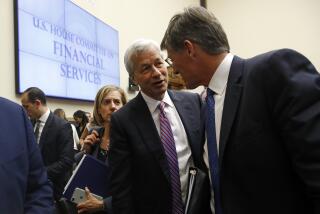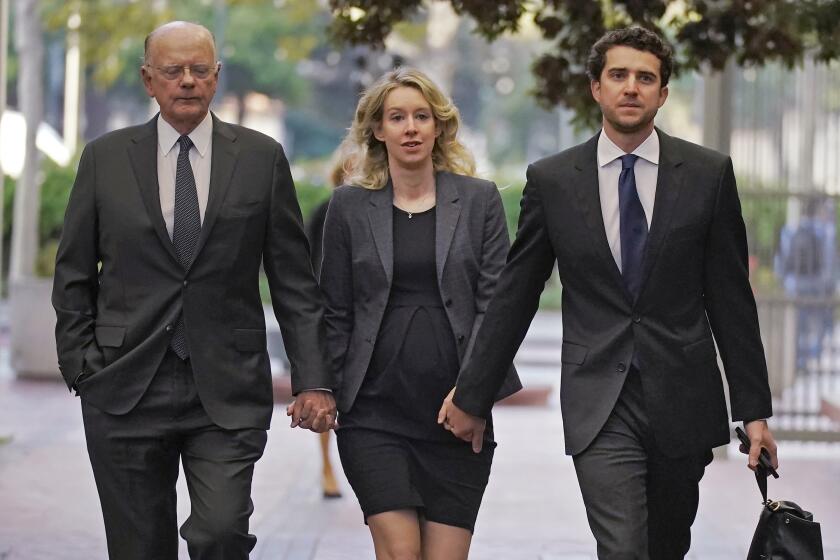It’s Now or Never on Tax Reform
- Share via
Stifle those second thoughts about tax reform. Now that its passage seems inevitable, the doubters are getting one last say. They would have you believe that America is about to wake up with a head-splitting hangover and the horrifying discovery that during the previous night’s festivities it got married to a gorilla.
In econometric laboratories across the nation huge computer models churn out ludicrously precise prognoses (growth down 0.3%, predicts Wharton Econometrics). Journalists round up the usual quotable suspects: Allen Sinai of Shearson Lehman Brothers (the chance of a recession has doubled), former Council of Economic Advisers Chairman Murray Weidenbaum (unemployment up half a percent), Lawrence Chimerine of Chase Econometrics (no likely effect over 10 years), Edward Yardeni of Prudential-Bache Securities (“This is the wrong time . . . “).
These people make a fine living as consultants to business. Do they believe in capitalism? The philosophy of this reform is to get government out of the way and let capitalism do its thing by taxing all types of economic activity more equally. If you believe in capitalism, how can that be bad?
The economic landscape will change, of course. Near my office in Washington is the notorious “hotel corner” where three large luxury hotels have popped up in a year. The trouble is that there aren’t enough customers. Those hotels never would have been built except for the “incentives” that this tax reform eliminates. But how do empty hotel rooms add to our national prosperity? In the future hotel builders will look for customers first.
Wall Street’s takeover mania also will cool. The misguided 1981 tax act gave bigger depreciation write-offs to new purchasers of business assets. This has had the perverse effect of making any company that hasn’t changed hands for a couple of years more valuable to outsiders than to its current owners (who have used up the best part of their write-offs). Reform will slow the pointless churning of assets. Businesses will be more likely to stay put in the hands of those who can run them the most productively.
Heavy industry is moaning the loss of the investment tax credit for machinery. Yet study after study showed that the tax credit cost the government more in lost revenue than it added to business investment (since most investments that got the credit would have been made anyway). Venture capitalists, meanwhile--belying their self-image as business buccaneers--whine that they will have to pay the same 28% top rate on their capital gains that other investors pay on dividends and interest. But why should the government favor one form of investment over another?
What upsets the business community most is the five-year, $120-billion shift in the tax burden from individuals to corporations. Even this, though, can be defended on pure capitalist grounds. It’s true, as the business mantra has it, that “corporations don’t pay taxes, only people pay taxes.” But this doesn’t mean that corporate profits shouldn’t be taxed in one way or another. Corporate profits are a form of return to capital, and there’s no reason people--corporate stockholders--shouldn’t be taxed on the return to capital. In recent years the share of revenue coming from the corporate income tax has plummeted, the capital-gains loophole has been expanded and the estate tax has been virtually abolished. Meanwhile, inflation has pushed working people into higher brackets and the Social Security payroll tax has continued its relentless climb. As an overall result, more and more of the tax burden has shifted from capital to labor--that is, salary and wages.
Ah, but what about the $11-billion extra that this supposedly revenue-neutral bill will draw from the economy next year? Won’t that risk pushing us into recession? The answer is that anyone who thinks that $11 billion one way or another can dramatically affect a $4.5-trillion economy must have a heart attack every time he opens a newspaper. Responsible estimates of next year’s deficit have varied far more than $11 billion over the past few weeks. The runaway farm program alone will be adding an unexpected $15 billion to the deficit next year. So relax.
But isn’t this radical experiment just too risky at a moment when we’re tottering on the brink of a recession anyway? Shouldn’t we put it off? Answer: Till when? In political reality it’s now or never. Anyway, like the fellow who’s going to stop smoking right after Christmas, there’ll always be another excuse. Like the cure for any addiction, tax reform will bring some withdrawal symptoms. But pretty soon we’re going to feel great.
More to Read
Inside the business of entertainment
The Wide Shot brings you news, analysis and insights on everything from streaming wars to production — and what it all means for the future.
You may occasionally receive promotional content from the Los Angeles Times.










